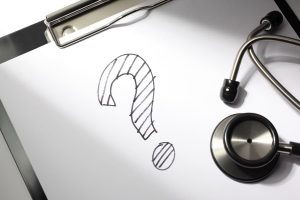
How Does Physical Therapy Help After a Mastectomy?
Physical therapy is well known for its role in helping patients recover from sports injuries, surgeries, and orthopedic conditions. Many people may not realize that
HIPAA Alert: Potential Data Breach Learn More
Questions on Oncology, Hematology and/or Infusion Clinical Services due to COVID-19 Crisis – CALL 833-698-1623
Important Information for Our Patients Regarding the Coronavirus.
RCCA Providing Area Cancer Patients with Access to Care During Coronavirus Outbreak
RCCA Offering Patients Virtual Visits During Coronavirus Pandemic
Kidney cancer, also known as renal cancer, is among the 10 most common cancers in both men and women, according to the American Cancer Society. The most recent projections estimate that there will be around 82,000 new cases of kidney cancer in the United States this year. The rate of kidney cancer diagnoses has been rising since the 1990s, so understanding the symptoms of the disease and early detection are imperative.
With a team of board-certified medical oncologists, Regional Cancer Care Associates (RCCA) specializes in treating various types of cancers, including kidney cancer. Those specialists proudly serve patients in New Jersey, Connecticut, Massachusetts, and the Washington, D.C., area, providing them with personalized care plans and educating them on their conditions. Discover more about kidney cancer symptoms and the approach to early detection at RCCA.
Kidney cancer develops when kidney cells undergo a DNA mutation. This mutation causes the cells to grow out of control and develop into tumors.
The kidneys are located just below the rib cage, one on each side of an individual’s spine. They are two bean-shaped organs, each about the size of a fist. When functioning properly, the kidneys have several functions, including blood pressure regulation, acid-base balance, toxin removal, activation of vitamin D, water balance, and electrolyte balance.


A risk factor is anything that increases the chances of an individual developing a disease. Some risk factors are controllable while others cannot be changed. Additionally, having one or several risk factors for kidney cancer does not guarantee that an individual will develop the disease; it simply increases that person’s risk.
Risk factors for kidney cancer include:
Individuals may be able to lower their risk of developing kidney cancer by addressing controllable risk factors. For example, stopping smoking may lower the risk, and controlling body weight and high blood pressure may help, as well.
Advanced kidney cancer is likely to produce more severe symptoms that should not be ignored. Individuals who notice any of these warning signs should speak with their physician as soon as possible.
Bloody urine is a common symptom of kidney cancer, occurring in one-fifth of people who are diagnosed. Blood in the urine can be moderate, causing only a pink tinge to the urine, or might be microscopic.
About 40% of people with kidney cancer experience pain at some time during their disease. Pain may occur in the back, side, or abdomen, and can vary from a subtle ache to a sharp, stabbing pain. Pain in the flank that occurs without an obvious injury must always be evaluated by a physician.
Unintentional weight loss is a common symptom of kidney cancer. Individuals who inexplicably lose 5% or more of their body weight over a 6- to 12-month period should see their healthcare provider.
Because the kidneys play a crucial role in regulating fluid balance in the body, unexplained swelling can be a cause for concern. Kidney cancer can interfere with the kidneys’ ability to perform this task, leading the body to retain more fluid than normal. Swelling most notably occurs in the feet, ankles, and legs. Lumps in the abdomen can be another sign of advanced kidney cancer.
Because kidneys produce hormones that play an important role in regulating blood pressure, persistent high blood pressure may be a symptom of kidney cancer.
The kidneys produce a protein called erythropoietin, which stimulates the production of red blood cells in the bone marrow. Kidney cancer can interfere with this process, leading to the overproduction of red blood cells and abnormal blood counts. The disease also can cause anemia as a result of chronic blood loss through the urine. This is one of the most telltale signs of kidney cancer and is present in one-third of people diagnosed.
Being aware of the signs and symptoms of kidney cancer can help people receive the medical attention they need sooner, improving their chances of successful treatment and recovery. People demonstrating any of the warning signs of kidney cancer should seek an evaluation from their primary care physician or a nephrologist. People who are diagnosed with kidney cancer can turn to the specialists of Regional Cancer Care Associates for expert treatment. Serving individuals in more than 20 locations throughout New Jersey, Connecticut, Massachusetts, and the Washington, D.C., area, board-certified medical oncologists and other medical professionals offer comprehensive cancer care as well as treatment for a variety of benign blood disorders. Contact Regional Cancer Care Associates today for more information regarding treatment options for kidney cancer.
Cancer is an impactful disease that changes the course of each patient’s life. At Regional Cancer Care Associates, we understand the importance of providing targeted treatments that meet the unique needs of each person who walks through our doors. With more than 31 locations across New Jersey, Connecticut, Massachusetts and the Washington, D.C., Area, a knowledgeable, helping hand is never far away. To speak with an oncologist about kidney cancer symptoms or screening measures, contact us today.

Physical therapy is well known for its role in helping patients recover from sports injuries, surgeries, and orthopedic conditions. Many people may not realize that

Colon cancer is often treated with surgery, which can have a long recovery period. When patients understand what to expect, they feel more confident about

Routine screening is an individual’s first line of defense against colon cancer. Many people have the freedom to choose which type of screening to undergo,

Regional Cancer Care Associates is one of fewer than 200 medical practices in the country selected to participate in the Oncology Care Model (OCM); a recent Medicare initiative aimed at improving care coordination and access to and quality of care for Medicare beneficiaries undergoing chemotherapy treatment.